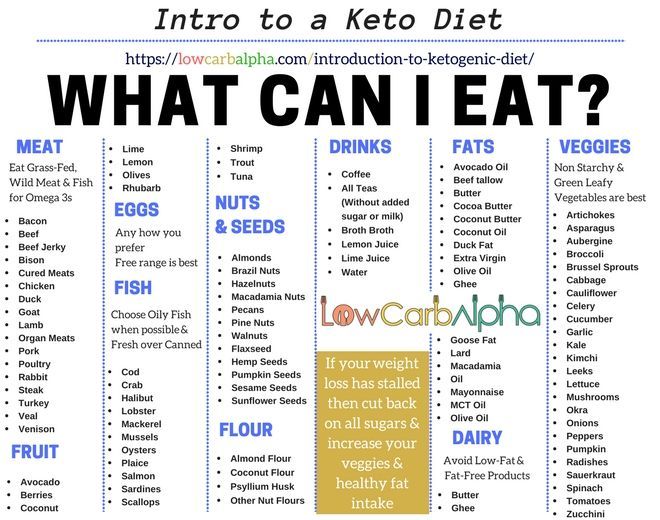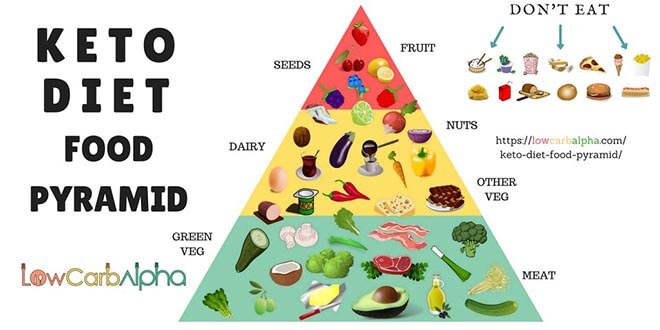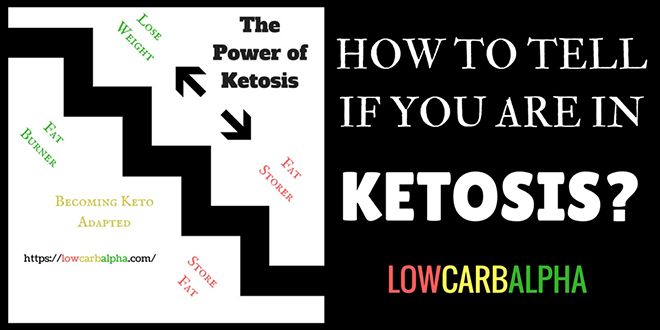Navigating the world of nutrition can be really confusing, especially with diets that promise everything from weight loss to great energy levels and health.
Among these are the low-carb and zero-carb diets, which have similar names but very different approaches.
Understanding what sets them apart, and which might work better for you, is key to making sustainable choices.
This guide will go in-depth into what low-carb and zero-carb diets really are, their advantages and challenges, and how to decide which one aligns with your goals and lifestyle, including insights into the ketogenic diet.
What Is a Low-Carb Diet?
A low-carb diet does not completely cut out carbohydrates but rather minimizes them to focus more on proteins, healthy fats, and vegetables.
The idea is to keep carb intake below a certain threshold, depending on your goals and the specific plan you’re following.
Restricted foods on a low carb diet include bread, pasta, rice, and sugary snacks, while fatty and lean meats, fish, eggs, nuts, seeds, and non-starchy vegetables take centre stage.
Most low-carb diets allow some fruits, dairy products, and whole grains, but in smaller amounts than a standard diet.
For many, this approach finds a balance without strict restriction, allowing for a variety of foods while managing carb intake to control weight, blood sugar, or energy levels.

What Is a Zero-Carb Diet?
A zero-carb diet is much stricter. As the name suggests, your aiming to cut out all carbs completely and focusing primarily on protein and fat sources.
This usually excludes grains, fruits, vegetables, or anything with even minimal carb content.
Common no-carb foods include meat, fish, eggs, butter, and oils, with some allowances for certain types of cheese or low-carb dairy, depending on strictness.
The diet often induces ketosis, where the body burns fat for fuel instead of carbohydrates. While it can result in quick weight loss, careful monitoring is necessary to meet nutritional needs.
This strict approach closely aligns with the principles of the ketogenic diet, which also promotes ketosis by limiting carbohydrate intake.
By understanding these differences and how the ketogenic diet fits into the broader spectrum, you’ll be better equipped to decide which approach aligns with your goals and lifestyle.
The Benefits of a Low-Carb Diet
A low-carb diet is generally easy to follow, as one would find the balance offered by such a diet easier to sustain. Most people consider such diets maintainable and hence easier to adhere to over longer periods of time.
• Steady energy levels: By cutting down on refined carbs such as white bread and sugar, you can avoid energy crashes and, in turn, remain more stable during the day.
• Weight Management: A low-carb diet can favor weight loss by reducing overall calorie intake and controlling hunger.
• Better Blood Sugar Control: Those experiencing insulin resistance or diabetes can benefit from a low-carb approach, as this could help regulate blood sugar levels.
• Improved Heart Health: Low-carb diets, if well implemented, can provide an abundance of heart-healthy fats and nutrient-dense foods.
Years ago, after initially trying the low-carb diet for a few months, I felt much more energized.
Adopting a ketogenic way of living and cutting back on heavy pasta and rice dinners freed up space for more vegetables, proteins, and healthy fats.
As a result, I no longer experienced mid-afternoon slumps or bloating.

The Benefits of a Zero-Carb Diet
A zero-carb diet goes all in, and while it may be restrictive, it certainly has its perks for people who work well within structured guidelines or under specific health circumstances.
• Rapid fat loss: Your body turns out to be very efficient at burning fat for energy when it enters a stage of ketosis, a key component of the ketogenic diet, which could result in accelerated weight loss.
• Clearer mental focus: Some people experience clearer mental concentration and focus once their brain actually shifts into burning ketones instead of relying on glucose for energy.
• Reduced cravings: Taking out all carbohydrates can drastically reduce sugar cravings making it easier to avoid overeating.
• Less hassle eating: To some people who like straightforward dos and don’ts, the “no-carb” approach is far less complicated than constantly tracking carb grams.
When I tried a zero-carb nutrition plan for a week, I noticed my appetite significantly decreased, and it seems it was almost impossible to gain weight, no matter how much I ate.
However, living without fruits and vegetables was challenging, making it difficult to commit to the carnivore diet long-term.
Challenges of a Low-Carb Diet
While a low-carb diet has many benefits, it’s not without its hurdles. Adjusting to a lower carb intake can feel tough, especially if carbs have been a big part of your diet.
• Carb cravings: It can be extremely difficult to say no to bread, pasta, or sweets, especially in social settings.
• Initial fatigue: Reducing carbohydrate consumption can result in temporary energy lows while the body is in adjustment.
• Misunderstanding portion sizes: Many believe that “low carbohydrate” means one can have as much protein and fat as they like, leading to overconsumption.
• Nutrient balance: Without proper planning, a low-carb diet may miss some important vitamins and fibre provided by fruits, whole grains, and starchy vegetables.
Before adopting a low-carb lifestyle, I consumed carbs daily my entire life.
Naturally, I still experienced cravings while passing by bakeries, fast food restaurants, and similar places.
However, as the weeks went by, the cravings diminished, and I began to enjoy the variety of dishes I was preparing.

Challenges of a Zero-Carb Diet
The no-carb diet takes it to an extreme, and that can come with its own set of challenges. It’s not for everyone, and even those who strive with it have to closely watch their health.
• Limited food options: Cutting out all carbs significantly restricts your choices, which can feel monotonous over time.
• Nutritional gaps: Without vegetables, fruits, and grains, one may fall short of getting essential nutrients such as fibre, potassium, and vitamin C.
• Social challenges: Dining out or eating with friends becomes tough when so many foods are taboo.
• Low Energy Levels: The “keto flu” is common when your body is adapting to burning fat instead of carbs, which may include temporary fatigue and irritability.
When I tried zero-carb, I realized very fast how much I relied on variety in my meals.
With no fruits and vegetables, I felt like my diet lacked flavour, and it was challenging to stay consistent.
The Advantages of the Carnivore Diet
In addition to the ketogenic diet and zero carb diets, the carnivore diet emphasizes an all-meat approach.
This diet can further limit carb intake and provide specific benefits for those who enjoy meat-based meals.
• Nutrient-Dense Protein: The carnivore diet provides ample amounts of protein and essential nutrients found in animal products.
• Simplicity: For individuals who prefer a straightforward diet without tracking carbs or calories, the carnivore diet offers simplicity.
• Potential Benefits: Some report improved digestion, insulin resistance, and reduced inflammation on a carnivore diet, though scientific research is ongoing.

Comparing the Two: Low Carb vs Zero-Carb
The choice between low carb and no carb ultimately depends on your goals, preferences, and lifestyle.
Each approach has its strengths, and what works for one person might not work for another.
Flexibility
• Low carb allows for a wider range of foods, making it easier to adapt to different situations like dining out or family meals.
• No carb is a lot more restrictive, which works great if you do well with structure but can feel too constrictive to others.
Sustainability
• A low-carb diet is easier to maintain over the long term, as it doesn’t require cutting out entire food groups.
• No-carb diets are harder to sustain and might work better as a short-term approach for specific goals like rapid weight loss.
Nutritional Balance
• Low carbohydrate allows more latitude for nutrient-dense foods such as fruits, nuts, and some grains.
• No carb, which can also be referred to as zero carb, potentially misses out on valuable nutrients and may require supplementation or careful monitoring.
Outcomes
• Low carb supports steady, sustainable weight loss and improved energy levels.
• No carb can lead to quicker results such as losing weight fast. but might come with more challenges and risks.
How to Decide Which Diet Is Right for You
Choosing between low carb and no carb comes down to your goals, health status, and personal preferences.
Consider Your Goals
• If you’re looking for a manageable way to lose weight, stabilize blood sugar, or improve energy, low carb might be your best bet.
• If you’re aiming for rapid weight loss or want to try getting into ketosis fast, a zero-carb diet could be worth exploring, at least in the short term.
Listen to Your Body
Pay attention to your body’s responses. Some people thrive on a low-carb diet, while others feel their best in ketosis with the ketogenic diet. You can try both and see which one works best for you.
Consider Your Lifestyle
• If you like flexibility, freedom, and choices, then low carb is probably a better fit.
• If you want it black and white, rule-based, then no carb or carnivore may be more your thing.
In either case, both diets can be considered ketogenic, largely depending on the amount of carbohydrates you consume daily.
By carefully monitoring and limiting your carb intake, you can achieve and sustain the benefits associated with the ketogenic lifestyle, regardless of which diet you choose.
Talk to a Professional
If you have specific health concerns or aren’t sure where to start, consulting a dietitian or healthcare provider can provide personalized guidance.

Making Either Diet Work for You
Regardless of whether you choose low carb or no carb, a few principles can help you stay on track and make your experience successful.
• Emphasize whole foods: Prioritize high-quality protein sources, healthy fats, and vegetables rich in nutrients (if allowed).
• Stay hydrated: Many people follow one of these diets and tend to get rid of a lot of water within the first week or two, so drink plenty of water.
• Prioritise meal prep: Having ready-made options ensures you stay consistent, even on busy days.
• Monitor progress: It might be wise to track your progress, whether it be weight, energy levels, or general well-being, so that you can make whatever adjustments you feel necessary.
Conclusion: Which Diet Wins?
There’s really no single answer to low carb versus no carb. Each has its place, and which is better is determined by individual goals and personal preferences.
Low carb allows flexibility and balance, therefore being more manageable for most people.
No carb, which is limiting carb intake to the extreme, is a little more restrictive and can deliver faster results but requires careful planning and monitoring.
The key is to find what works for you. Whether it’s enjoying a low-carb meal with some veggies or diving into a zero carb steak dinner, the best diet is the one you can stick with long term while feeling healthy and energized.





